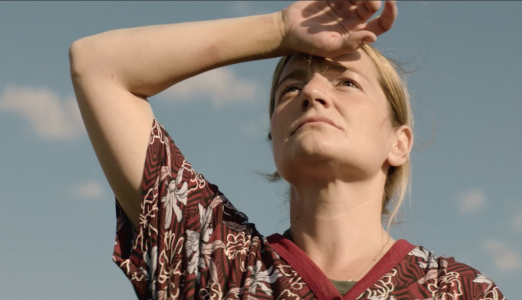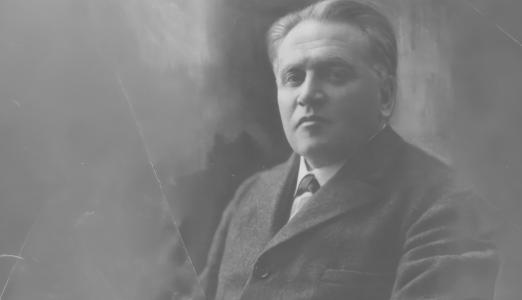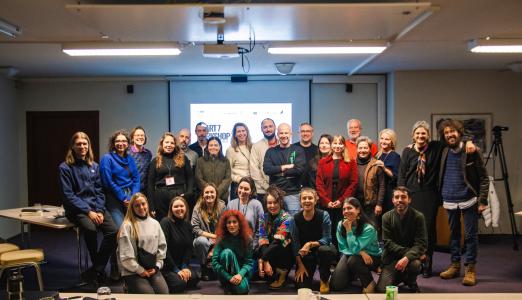Mircea Daneliuc Tribute at Thessaloniki IFF
After discovering his films at Transilvania IFF, curator Dimitri Kerkinos decided to showcase the work of the Romanian auteur.

Director Mircea Daneliuc was celebrated at 56th Thessaloniki IFF (November 6 to 15) in the Balkan Survey section, after curator Dimitris Kerkinos discovered his films at Transilvania IFF, during the retrospective dedicated to the Romanian auteur. Kerkinos decided to organize another event that will contribute to the (re) discovering of his work. Mircea Daneliuc attended the screenings and introduced the films to the festival’s audience.
More about Mircea Daneliuc's Retrospective at Transilvania IFF.
***
Mircea Daneliuc Tribute
Mircea Daneliuc is considered as one of the most important Romanian artists. His subversive films, which evaded the communist censorship, are filled with realism, dark humor and unrelenting satire aiming at social reality. Born in 1943 in Hotin (today’s Ukraine), Daneliuc studied French Philology at the university of Iasi and Film Directing in Bucharest Film and Theatre Academy, from which he graduated in 1972. Apart from directing and writing for the cinema and theater, Daneliuc is also an actor, while he has also written many novels and short stories.
Daneliuc’s debut feature The Ride (1975) is a profoundly human road movie that renounces the classic narrative of socialist realism and praises friendship and companionship. A landmark film of the Romanian cinema, Microphone Test (1980) stands as a poignant comment on the bureaucratic absurdity, the unsolved social and economic problems, as well as the people who “feed” the system and its hypocrisy. Set in a Romanian village in the ‘50s, Foxhunting(1980) tackles a taboo subject: it records the destruction of Romania’s rural class, through the story of a farmer who resists the collectivization process and stubbornly refuses to sign his land and cattle over to the state.
A cruise on the Danube, awarded to the best workers from various factories in communist Romania, raises questions of ideology and politics in The Cruise(1981), a bold film with a strong dissident message by which Daneliuc dares to criticize the regime in harsh times of censorship against the freedom of artistic expression. Iacob (1988), one of Daneliuc’s best films, centers on the tragic fate of Iacob, a miner wrongly accused of stealing gold. With its stark realism, the film explores a universal theme: a man’s struggle for dignity under humiliating circumstances.
Following Ceaușescu's fall, Daneliuc ponders cinematically on the transition of the Romanian society in a straightforward and cynical manner. His film Intimate Bed (1993) becomes a detailed portrait of this era, blending black humor, grotesque elements and shocking brutality with a main character that is driven to madness by the absurd world around him. Fed Up (1994) is a satire of Romania’s health system that also reflects the disappointment of its people in the post revolutionary era, despite their regained freedom. A critique on the new political elite, Snails’ Senator (1995) centres on a senator and former member of Romania’s communist party, whose relaxing weekend in the country is disrupted by a crew of Swiss journalists who investigate his corrupted actions in the past.
THE FILMS
- Mircea Daneliuc Tribute
- Roundtrip (1972, short)
- The Ride (1975)
- Microphone Test (1980)
- Foxhunting (1980)
- The Cruise (1981)
- Iacob (1988)
- Intimate Bed (1993)
- Fed Up (1994)
- The Snails’ Senator (1995)
***
Transilvania International Film Festival (May 27-June 5, 2016) is organized by the Romanian Film Promotion and the Association for Film and Urban Culture.





